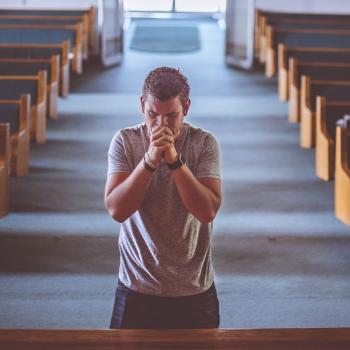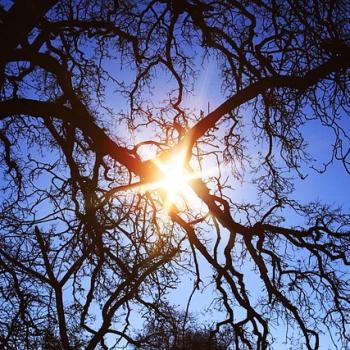When I was in seventh grade, the group of girls I hung out with stopped speaking to me. Every time they passed me in the hall, they would turn their backs and giggle. I felt like an outcast. It was my first experience of real loneliness, and at the time, it felt like the end of the world.
That experience hung around in my emotional backpack for years. Even now, the word loneliness can sometimes trigger the emotion—part melancholy and part loss—of those days. It was only after I had been doing spiritual practice for a while that I began to see that the emotion of loneliness is not only personal. Like anger and fear, loneliness is one of those universal, primal emotions, a groove in humanity's sub-conscious. Most of us—even those of us who like being alone—cannot help falling into it at one time or another.
Loneliness is more about psychic disconnection than physical solitude. To appreciate time alone, most of us need to feel we have a choice—that friends or family are no farther away than a phone-call. Otherwise, time alone can be miserable. In fact, my suspicion is that the primal feeling of loneliness has something to do with a genetic instinct that equates safety with physical closeness to a tribe or family. On that pre-rational level, loneliness can feel like death.
Home Alone
Perhaps that's one reason why loneliness, and even the fear of loneliness, can be such a stumbling block on the road to inner growth. Certain journeys cannot be taken unless you're willing to face loneliness, and yet many of us are afraid of it. Have you ever stayed in a relationship long after you knew it wasn't good for you, held onto friends who no longer understand the person you've become, shied away from meditation and contemplation—because it meant being by yourself?
The irony, of course, is that when you accept loneliness, you discover something powerful and freeing on the other side of it. My loneliness in seventh grade taught me compassion for the unpopular, and inspired me to seek friendships based on genuine intimacy rather than the need to belong. Years later, the extreme loneliness of a rainy week in Big Sur, stuck in a cabin at the end of five miles of dirt road, catapulted me into my first real experience of present-moment awareness; I still remember the surprising joy of hours spent watching the path the raindrops made as they streaked down the window.
Loneliness, like fear, is a threshold emotion—you have to pass through it if you want to enter the inner world. In fact, loneliness is the shadow side of solitude, that magical and transformative state that poets, mystics, and yogis celebrate as the great laboratory for self-awareness and spiritual growth. If loneliness reeks of alienation and sadness, solitude offers the ground for you to connect to what is essential in yourself. Solitude teaches you how to be with yourself, and without it, you never learn to truly be at home with what you are. "Alone . . . and the soul emerges," Walt Whitman wrote in a poem celebrating solitude.
So perhaps the real question when you're alone during the holidays, or recovering from a breakup, or wondering why your friends seem so distant and unsupportive is not "How can I make this empty feeling go away?" but "How do I turn the painful state of loneliness into the transformative state of solitude?"
A Map of Loneliness
The first step in this is to learn how to identify the kind of loneliness you're feeling. Loneliness has more than one flavor. Moreover, it has layers. Some of these are purely personal. Others are universal, part of the human condition.
The first layer, which I call Situational Loneliness, is the empty feeling you might get when you're alone in a strange hotel room, or when Saturday night arrives and you have no plans, or when you have a difficult task to do and there's no one around to help.
If you're an introvert, this kind of loneliness may carry with it a painful history, a piggybank of memories that swims up when you find yourself alone. If you've always been outgoing and popular, it may be the unfamiliar emotion you felt during the first few days of college or a new job—but even then, it can knock you for a loop. Often people on meditation retreats, especially silent ones, go through intense bouts of loneliness before they can settle into being with themselves.
When you're experiencing this kind of social withdrawal symptom, the temptation is often to dissipate it with some sort of activity. However, finding yourself temporarily lonely also offers a great opportunity to investigate solitude. Instead of turning on the TV or going to look for action, you might want to spend some time exploring aloneness.
Isolation Tank
Situational loneliness is usually a temporary phenomenon, and relatively superficial. Not so the loneliness of true social isolation, which is for many people an ongoing and painful reality. When you're enduring a failing relationship, when you've been rejected or cut off from social supports, when you're unemployed or homeless or suffering from a long illness—these are times when we can touch the depths of personal loneliness.





